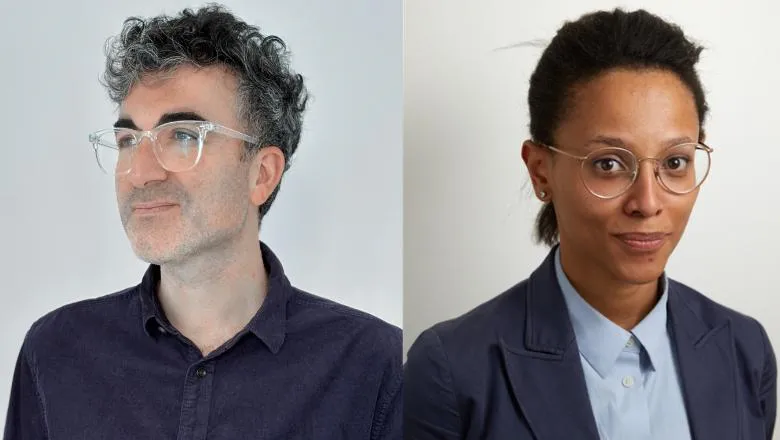Two academics at King's, Professor Felipe González and Dr Letizia Gionfrida, have been named among just 30 recipients of the acclaimed Philip Leverhulme Prize by the Leverhulme Trust.

The Philip Leverhulme Prize recognises the achievement of outstanding researchers whose work has already attracted international recognition, and whose future career is judged to be exceptionally promising.
Chosen from over 350 nominations, this year the Trust offered five prizes in each of the following subject areas: Archaeology, Chemistry, Economics, Engineering, Geography, and Languages and Literatures, with each recipient receiving £100,000 to use for any purpose that advances their research.
Professor González, Professor of Economics at King's Business School, has been awarded the prize in Economics. His research explores how institutions and public policies shape economic, political, and social outcomes in both democratic and authoritarian societies. His work helps build understanding of how the legacies of political regimes, government actions, and policy decisions influence inequality, opportunity, and long-term development.
I'm honoured to receive this award. At a time of global uncertainty, ambitious development goals, and widening inequality, I hope the insights from my research will help us better understand how institutions can promote inclusion, opportunity, and sustainable growth."
Professor Felipe González, Professor of Economics
Dr Letizia Gionfrida, Lecturer (Assistant Professor) in Computer Vision in the Department of Informatics at King's, has been awarded the prize in Engineering, for her work on vision-guided control models for adaptable wearable robotics, integrating vision to enhance real-time adaptability, personalisation and safety in assistive technologies. The Philip Leverhulme Prize will support the rapid development and deployment of RL (reinforcement learning)-based controllers for wearable robots.
I am deeply grateful for this recognition. To receive the Philip Leverhulme Prize is an incredible honour. I am especially inspired by the opportunity it provides to develop adaptable robots that can cooperate with humans and make a tangible difference in people's lives. Beyond the scientific impact, I also hope to serve as a model for women and black computer scientists and engineers who aspire to contribute meaningfully to the field of robotics, fostering a more inclusive and diverse scientific community."
Dr Letizia Gionfrida, Lecturer (Assistant Professor) in Computer Vision
Marking its 100th anniversary this year, the Leverhulme Trust is an independent charity that provides funding for research projects, fellowships, studentships, bursaries and prizes. It operates across all the academic disciplines, the intention being to support talented individuals as they realise their personal vision in research and professional training.
We continue our centenary celebrations with the announcement of this year's prize winners. The Trust is delighted to support them through the next stage of their careers. The breadth of topics covered by their research is impressive, from landscape archaeology to biomolecular mass spectrometry, applied microeconomics to adaptable wearable robotics, and pyrogeography to critical applied linguistics. Selecting the winners becomes increasingly challenging year-on-year due to the extraordinarily high calibre of those nominated. We are immensely grateful to the reviewers and panel members who help us in our decision-making."
Professor Anna Vignoles, Director of the Leverhulme Trust






